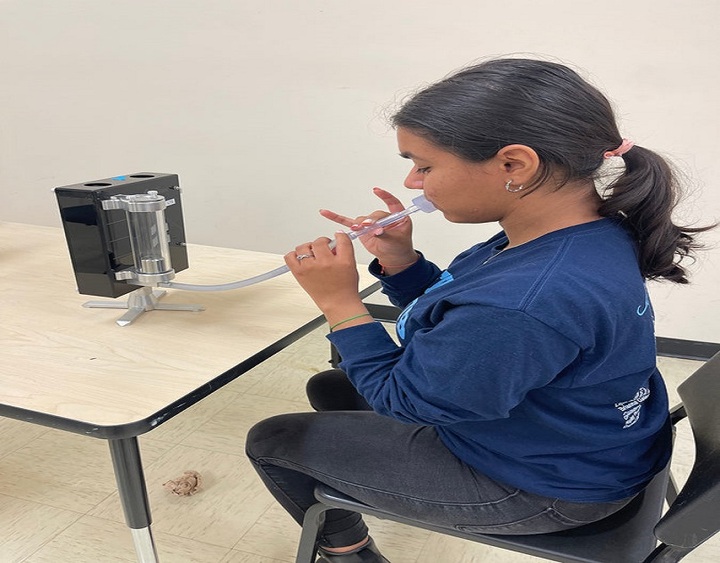More from Lung Trainers LLC
More in Politics
Related Blogs
Les archives
Partage Social
Lung Training for Musicians: Breath Control for Better Performance
Corps
Introduction
Music is an art form that transcends boundaries and has the power to touch our souls. Musicians, whether vocalists or instrumentalists, understand the importance of precision, timing, and emotion in their performances. However, one often overlooked aspect of musical excellence is the role of the respiratory system in producing high-quality sound and maintaining stamina during long performances. lung training for musicians is a crucial aspect of their training that can make a world of difference in their artistry.
In this article, we will explore the significance of lung training and share some techniques to improve breath control for musicians.
The Importance of Lung Training
The human voice and musical instruments are highly dependent on the respiratory system. Musicians need to control their breath to create a consistent tone, achieve the desired pitch, and produce the necessary volume. Here are some reasons why lung training is essential for musicians:
- Sustained Notes: Whether you're a vocalist or an instrumentalist, the ability to sustain a note is essential. Musicians must have the lung capacity to hold a note for an extended period without wavering or losing quality.
- Phrasing and Expression: Music is a language of emotions. Musicians use their breath to convey a wide range of emotions through their playing or singing. Proper lung training allows for more nuanced control over phrasing and expression.
- Stamina: Many musicians perform for extended periods, often in challenging conditions such as long concerts or outdoor events. A well-trained respiratory system can help musicians endure these demanding situations without compromising the quality of their performance.
- Reducing Performance Anxiety: The confidence that comes from knowing you have good breath control can help reduce performance anxiety, allowing musicians to focus on their art rather than their physical limitations.
Techniques for Lung Training
- Diaphragmatic Breathing: Diaphragmatic breathing, also known as "belly breathing," is a fundamental technique for musicians. To practice this, place one hand on your chest and the other on your abdomen. Inhale deeply through your nose, allowing your abdomen to expand, then exhale slowly through your mouth. This technique ensures you're using your diaphragm and not shallow chest breathing.
- Breath Support Exercises: Work on strengthening your core muscles to provide better support for your diaphragm. Pilates and yoga exercises can be particularly helpful for this.
- Breathing Exercises: There are various exercises designed to improve breath control, such as the "4-7-8" technique. Inhale for four seconds, hold for seven seconds, and exhale for eight seconds. This exercise helps expand lung capacity and improve control.
- Vocal Exercises: For vocalists, specific exercises can enhance breath control. Singing scales, arpeggios, and incorporating crescendos and decrescendos into your practice can be effective in building breath control.
- Wind Instrument Techniques: Wind instrument players should focus on lung training devices to develop breath control. These exercises involve holding notes for extended periods, improving endurance and breath management.
- Metronome Practice: Musicians can practice breath control with the aid of a metronome. Set the metronome to a slow tempo and practice inhaling and exhaling in time with the beats. This helps in maintaining consistent breath control during a piece.
- Visualization and Meditation: Visualization and meditation can help musicians stay focused and relaxed during performances. This mental aspect of lung training is equally important, as anxiety can affect breath control.
Conclusion
Lung training for musicians is a crucial aspect of their craft that can significantly impact the quality of their performances. Whether you're a vocalist or an instrumentalist, a strong and controlled respiratory system is essential for sustained notes, phrasing, and stamina. By incorporating techniques like diaphragmatic breathing, breath support exercises, and vocal exercises into your practice routine, you can enhance your breath control and become a more accomplished musician. So, take a deep breath and get ready to elevate your musical journey to new heights through the power of well-trained lungs.
Source URL :- https://sites.google.com/view/lungtrainers-fl-/home










commentaires